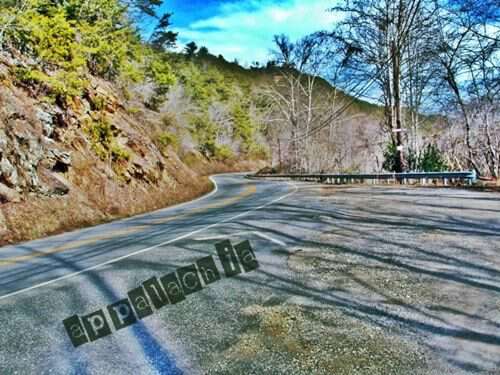
In Appalachia you’ll often hear folks adding unusual suffixes to their words.
Here’s a few examples.
-ified
- fightified
- girlified
- prettified
- townified
-like
- careful-like
- careless-like
- easy-like
- sudden-like
-est
- aggravatingest
- huntingest
- beatingest
- cheatingest
- eatingest
I think using the suffixes allows us to emphasize what we’re saying.
Tipper
Subscribe for FREE and get a daily dose of Appalachia in your inbox


Ever notice how we “southerners” always refer to home as being “down?” It seems to be against our nature to say that we’re going “UP” home. It’s always “DOWN” home. Perhaps it’s a holdover from civil war days when our ancestors associated “UP” with northern territories. Perhaps it will take more of Tipper’s blogging about Appalachian culture to promote better understanding of all this among the older set of us in the North and in the South. I’m very proud of my southern heritage, but I also respect the twang of Oklahoma and Texas as well as the clipped accents of those far north of the Mason-Dixon line.
I still talk like that, on a trip out of the country. The bus had stopped at a branch for lunch. One of the people I was with kept telling me it was a creek I told her where I was from there was a big difference between a branch and a creek. She said a branch was on a tree, I had to show her the dictionary. I was right.
I’ve heard those and used those on occasions ,so glad to be free to , I think it’s the grandest thing. 🙂
I’ve used them all. I just figured it was a Southern thing.
These are some of the special-like linguistic devices that can turn a smallified vocabulary into one of the most communicatingest forms of expression.
Tipper,
Our folks left Appalachia for Texas at the end of the Civil War for the most part, some before. However, it seems our speech, our customs, our traditions all align with what we read on Blind Pig. Everyone from around here in southeast Texas that we know all use these same expressions. I have heard them all my life and use a lot of them on a daily basis. So.. I guess when we left Appalachia, Appalachia came with us. It is who we are and that’s the bottom line. No telling how many generations past had the same customs, speech, etc. What gets me is there are folks here that do not have ancestry in Appalachia like we do that have the same manner of speech, expressions, customs and traditions that we hold dear. Where did they get it?
We love reading Blind Pig every morning. It’s an affirmation of who we are and what we hold dear. It just feels like reading a letter from home when far away.
~Joanne
Never used the “ified” suffixes but I have certainly used the others and heard them too.
You did it again. The idea is, as you say, beyond common, to me but for the life of me I can’t recall the last time I heard someone do that. Still less do I know when I have.
Are Chitter and Chatter back safe and sound? Going to me some mighty cold weather up that way soon I think.
est is a favorite of mine.
Sure Tip, I’ve heard all those and used a few. It is the way we emphasize what ever we are saying. I used to have a friend who grew up in upstate New York and he would occasionally say to me ‘Cindy, your country is showing’ in response to my use of just something like one of these expressions.
I use and hear all of these add ons. I never thought of it as being a local thing. I am sure I have heard folks from here to New York using them. I will pay more attention to whom I am talking the next time I here one of these.
I love language addind endings is also something I do. I imagime is to stress the importance.
I use them all, not as much as when I was growing up, but I use them to this day.
Yea, Jeff Foxworthy made millions off some of the words we use, and the way we say them.